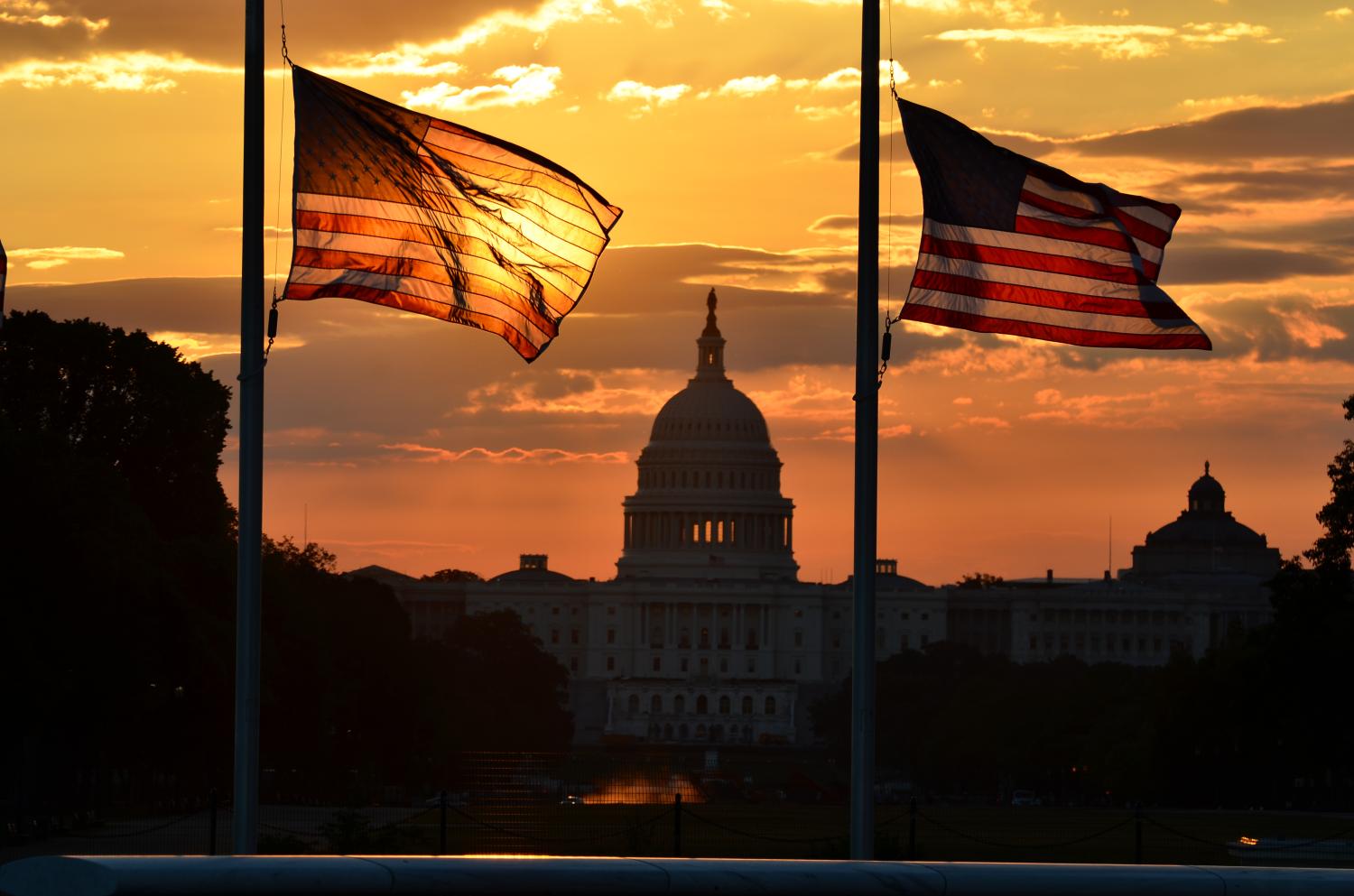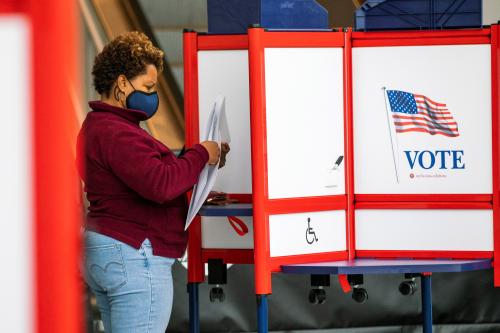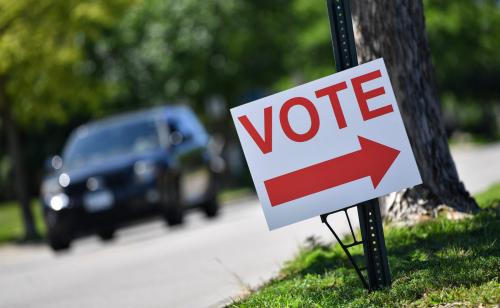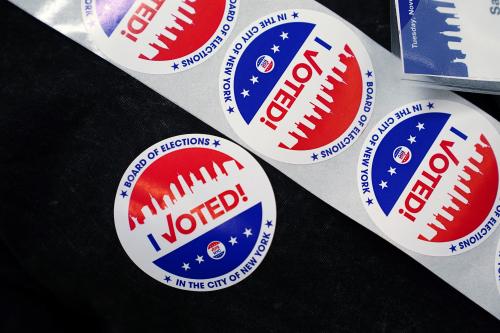This is Part 1 of a series which will take an in depth look at election deniers in the 2022 midterms in an effort to assess their likelihood of success, their plans if elected, and their impact on election administration and democracy.
The 2022 midterms may well be the first elections ever where the elections themselves are on the ballot. Well over 300 candidates across a variety of races this fall are perpetuating former President Trump’s assertion that the 2020 presidential election was stolen from him and that American elections are deeply flawed. Although no one has ever found proof of widespread and/or systematic fraud in the 2020 presidential election (as former Attorney General Bill Barr among others affirmed), the persistent and high-volume repetition by Trump and his high-profile surrogates has convinced many other Republicans that election was stolen. For many who don’t actually believe Trump’s assertions, the fact that he made belief in the “Big Lie” a condition of his support for one Republican over another in the primaries, led them to mimic Trump.
So far, we have been able to identify 345 candidates who will be on the ballot in November who have expressed election denial beliefs—false claims that the presidential election in 2020 was flawed. All of them are running as Republicans. The most important group—governors, secretaries of state and attorneys general—consists of candidates for statewide offices who, if they are elected, will have a great deal to say about how elections in their state will be run in the future. A second group are members of Congress.[1] They have little control over election administration—a traditionally state-run function—but they do have an important role to play in the acceptance of presidential electors and related matters (such as if the presidential election should be thrown into the House of Representatives). The third group are state legislators whose role could be critical in passing legislation to reform the laws in the direction that the election deniers want.[2]
Having assembled this list (keep posted as we will update it as more information becomes available), we attempted to ascertain the likelihood of success of each candidate. For the statewide and congressional races where we could find polls, we divided the races into those where the candidate was running ahead by 10 points or more, (high probability of victory), those where the candidate was running behind by more than 10 points (low probability of victory) and those where the candidate was within 10 points of their competitor (medium probability of victory.) For state legislative candidates, many are unopposed (high probability of victory) and for the others we looked at their most recent race and estimated their likelihood of success based on past performance. The following table shows the probability of success for all election deniers. As one can see, more than half of the election deniers look like they will win their races.
Table #1: Likelihood of Election Denier Candidates November Success
| High | Medium | Low |
| 199 (58%) | 70 (20%) | 76 (22%) |
However, it is important to break down Table #1 by office because the overall probability of success in Table #1 is skewed by the fact that so many of the election deniers are congressional incumbents—35% percent in fact. Historically, incumbents in Congress have very high re-election rates and this year should be no different. In the all-important category of statewide elected officials, probability of success is less lopsided. We can also see the Trump effect at work. For instance, in deep blue states like Maryland and Massachusetts, the Trump-backed candidate won the Republican primary for governor when a more moderate Republican might have had a better shot to win the election (both states have retiring Republican governors). Nonetheless, in this critical category there are many election deniers poised to win and/or are in tough races. We have the least amount of confidence in our count of state legislators. This group will be critical when it comes to enacting new legislation. However, these races are small and local, there is almost never reliable polling of them, and it is difficult to determine who might be sympathetic to the election denier’s agenda.
Table #2: likelihood of Election Denier Candidates November Success by Office
| Office | High | Medium | Low |
| Statewide Elected Officials: Governor, Secretary of State, Attorney General | 14 | 16 | 17 |
| Candidates for U.S. House and Senate | 131 | 21 | 50 |
| State Legislative Candidates | 54 | 33 | 9 |
Finally, another way to look at this is by state. The appendix to this article lists the number of election deniers on the ballot by state. States Biden won, like California and New York, have very few election deniers on the November ballot, especially given their size. But important swing states such as Arizona, Florida, Georgia, Michigan, Pennsylvania, and Wisconsin have many election deniers on their ballots. Biden won in all of these states except for Florida, but his wins were narrow in each. These states are ones that Trump—or another GOP nominee—would have to win back in order to win the presidency again. Thus, it is not surprising that these states have the most candidates who are running on a platform of changing election procedures to stop what they believed to be cheating in the 2020 elections.
In our next post, we will look at just what kinds of changes could be enacted if the deniers win.
Appendix: Number of Election Deniers by State and Trump vote
| State | Number of Election Deniers Running in November |
| Alaska | 6 |
| Alabama | 11 |
| Arkansas | 1 |
| Arizona | 31 |
| California | 15 |
| Colorado | 5 |
| Connecticut | 1 |
| Delaware | 1 |
| Florida | 21 |
| Georgia | 19 |
| Iowa | 1 |
| Idaho | 3 |
| Illinois | 6 |
| Indiana | 4 |
| Kansas | 5 |
| Kentucky | 1 |
| Louisiana | 4 |
| Massachusetts | 4 |
| Maryland | 5 |
| Maine | 1 |
| Michigan | 24 |
| Minnesota | 6 |
| Missouri | 7 |
| Mississippi | 3 |
| Montana | 5 |
| North Carolina | 8 |
| North Dakota | 2 |
| New Hampshire | 2 |
| New Jersey | 1 |
| New Mexico | 2 |
| Nevada | 8 |
| New York | 6 |
| Ohio | 8 |
| Oklahoma | 5 |
| Oregon | 4 |
| Pennsylvania | 37 |
| South Carolina | 6 |
| Tennessee | 9 |
| Texas | 21 |
| Utah | 3 |
| Virginia | 3 |
| Vermont | 2 |
| Washington | 3 |
| Wisconsin | 21 |
| West Virginia | 2 |
| Wyoming | 2 |
- In addition to being a Senior Fellow at the Brookings Institution, Norm Eisen is the Co-Founder and Executive Chair of States United Action, which has done extensive work on those issues in the past.
Footnotes
[1] This group contains the members of Congress who voted not to certify the 2020 presidential election results.
[2] This group contains most of the state legislators (some are not running for re-election) who wrote to Vice President Mike Pence urging him to not certify the results of the election.
The Brookings Institution is committed to quality, independence, and impact.
We are supported by a diverse array of funders. In line with our values and policies, each Brookings publication represents the sole views of its author(s).










Commentary
Democracy on the ballot—how many election deniers are on the ballot in November and what is their likelihood of success?
October 7, 2022